This is the phrase that stood out to Ima Sanchis from the interview she did with me for La Contra, the back page of La Vanguardia, a Catalan newspaper. I was very excited about the interview she did with me, because when I turned 18, my siblings made a fake Contra for me, and since then I had dreamed of having a real one. Well, the opportunity presented itself: Ima was very pleasant and we had a conversation as if we had known each other forever, talking beyond the book, about life, how I see it, and what I think is important to improve the world and solve the problems that exist in today’s society.
Definitly, we had to have the conversation via Zoom for various circumstances. Something I didn’t know is that she created La Contra and started it more than 20 years ago. This impressed me even more, since I think (and I’m sure many of you will agree) that it is one of the best interview styles created within journalism in the last 20 years: it is a plural space where all kinds of people with different points of view are given a voice to see things, and I think this is very enriching. I am very grateful to her for her kindness, and curiously enough, she likes dogs like me: I told her about Bruna and she told me about hers, Oliva. This is one of the little things that I consider make life wonderful, as I say in the book. Below, I share the complete interview with La Contra.
Font: La Contra, La Vanguardia, Ima Sanchis. 29/12/2020
“Let’s not abandon each other”
I am 25 years old. I was born in Sabadell and live in Matadepera with my parents and one of my nine siblings. I studied Multimedia at UOC, I still need to complete my final project. Politicians must seek the common good, and that means fighting to save the planet. I believe in God and in life.
Xavi Argemí, with an incurable disease. Publishes ‘Aprendre a morir per poder viure’ (Learning to die to be able to live)
“Let’s not abandon each other”
IMA SANCHÍS
Xavi’s hope
Years are not on his side. Today, the atrophy of his muscles only allows him to move the fingers of his hand. He has an incurable degenerative disease, but Xavi also has many other things: an extensive family, friends, music, humor, his dog Bruna, a brave attitude and palliative care that helps him cope with the disease. “I have learned to live with death in sight. Or what is the same: I have been learning to die in order to live. And, paradoxically, my life is not a miserable life.” He tells it in Aprendre a morir per poder viure (Rosa dels Vents). “I have the hope of taking advantage of the minutes, days, or years that I have left, of making life easier for those who are by my side, and, through the book, to as many people as I can.”
“I can move my hands and head a little, although I can’t hold it, and I need help with everything, even drinking water.
Was he born with an incurable degenerative disease?
I was diagnosed with Duchenne muscular dystrophy at the age of three, since then I have been losing muscle capacity. I know it is progressive. I know what it implies for it to be so. I know how everything will progress.
…
Don’t worry, I have four pillars: family, friends, spiritual support, and medicine. Palliative care is my salvation.
His father is a pediatrician, his mother a nurse.
They taught me to live day by day, and by learning to die, I have learned to live. And it turns out that my life is not a miserable life. I have had many respiratory crises in which I thought I was going to die, but here I am, and I feel happy.
A survivor.
You learn, you have to accept that the end will come any day, but it will come to all of us, you have to keep that in mind but not obsess over it.
Do you achieve it?
I have my ups and downs, but I value what I have and what I can still do, like chatting with you, studying, enjoying a movie, music, fire… My list is endless. Daily life is full of small gifts.
We should all be more grateful.
I assure you that you can find happiness in a simple life.
Perhaps more than anywhere else.
My body has been atrophying, but my spirit has been gaining flexibility and acceptance. Perhaps the hardest thing has been distinguishing what the circumstances are from what the problems are.
What is the difference?
The disease is my circumstance. I don’t like it, but I have to accept it to be able to see the good things around me. Studying has meant for me many problems of mobility, tiredness, capacity, a challenge that requires not resigning. I can face the problems, I must learn to carry the circumstances
What comforts you on a bad day?
Bruna, my dog, a German Shepherd who keeps me company and gives me a lot of love. And I have great views, I never miss a sunset. For a year, I took a photo of the sunset from the same angle every day.
And now, when I see all 365 photos of sunsets together, what do I think?
That there are days of all colors: gray days, sunny days, red days, blue days, rainy days, it’s like life. It is life.
What are you up to now?
I have three baby chicks that I have given to my godson. They are in my house, and I have photographed them every day as they grow. It’s an incredible transformation! My father takes the photos, and I direct, haha.
What has been the most difficult adaptation?
Stopping eating and having to feed myself through a tube. In my house, everything revolves around the table. But I can have a glass of sangria from time to time. You have to look at the positive side of life, don’t you think?
That’s very easy to say and very difficult to carry out.
It’s a daily struggle. You have to build with what you have, and I am very lucky, surrounded by family and friends who love and accept me. They have also had to face my illness.
And how have your friends done?
Very naturally. They have never pitied me, they tease me just like they do with each other. Sometimes they put things on top of me as if I were a Christmas tree. I laugh a lot with them.
You have a good character.
Accepting your situation allows you to accept the help and love of others. And if you take your difficulties with joy, it also makes it easier for them. Accepting help from others is important, but not just for yourself.
Tell me more.
Doing something good for others forces you to go beyond yourself, and I think that’s very good for society. A society of people who need and help each other is a better society.
We all need help.
Especially as we age. Let’s not abandon each other. I think happiness is as simple as not focusing on oneself but on others. My life also has meaning.
What are your fears?
The unexpected, but I have hope that everything will turn out well.
Is that possible?
Expectations in a degenerative disease are always bad, but my parents were told I wouldn’t reach adolescence, and here I am, because medicine is advancing, so it’s better to live day by day.
I see.
Palliative care provides me with the necessary medication so that I do not suffer, and they accompany me psychologically, emotionally, and spiritually.
Have you ever considered euthanasia?
Never. If people had the care they needed, they might not want to die.

